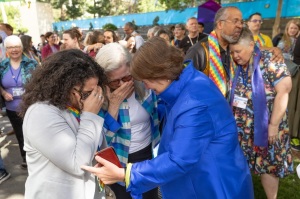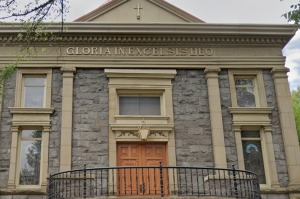Christian Legal Society Files Suit Against SIU
A Christian student group that requires members to sign a statement of faith - including a clause on homosexuality - on Tuesday filed a lawsuit against Southern Illinois University for stripping the organization of its registered-group status
A Christian student group that requires members to sign a statement of faith - including a clause on homosexuality - on Tuesday filed a lawsuit against Southern Illinois University for stripping the organization of its official registered-group status last month.
A chapter of the national Christian Legal Society (CLS) filed the civil suit in federal court alleging school officials violated the group’s constitutional rights by revoking the status on March 25.
The recent lawsuit is one of only a few first-amendment rights cases currently pending in court. The CLS has filed similar lawsuits in other schools, including Arizona State University and the University of California; several other cases were settled before heading to trial, according to the group’s attorney, M. Casey Mattox.
Mattox said the Southern Illinois chapter is also giving ten days for the university to settle matters before the litigation process begins.
“We’ve filed the complaint, but we will ask the university one more chance in a good faith belief that they will recognize that the CLS chapter should be treated fairly and that they will reverse their decision,” said Mattox. “That leaves the possibility that we could resolve it outside of the court.”
According to Sue Davis, a spokesperson for the university, the dean of the law school to whom the copy of the complaint was sent was out-of-town and would not be returning for two weeks.
Davis did not further comment on the litigation but said the university is “considering various options.”
The conflict at the university began in February when a student filed a complaint against the CLS chapter over the group’s statement of faith that includes – among other prohibitions - "the Bible's prohibition of sexual conduct between persons of the same sex,” Mattox explained.
A month later, the dean of the university sent a letter to the chapter claiming the group’s policy on leadership and membership violated the university’s “Affirmative Action/Equal Employment Policy” and a policy requiring organizations to adhere to “all appropriate federal or state laws concerning nondiscrimination and equal opportunity.”
The letter also stated that the group will “no longer be permitted to have a bulletin board in the School of Law’s Lesar Law Building and your organization will be removed from the School of Law’s web-site and in all future School of Law publications where student organizations are listed.”
Revoking the status also meant that the group cannot use some of the facilities available to official groups, such as the school’s auditorium, Mattox said.
According to Elizabeth Murray, Litigation Staff Attorney at the Alliance Defense Fund, the case at SIU underscores a larger trend against Christian thought on university campuses.
“There is a strong trend for universities to turn a marketplace of ideas into a place where the only idea that prevails is their own,” said Murray, whose group specializes in first amendment campus cases. “Christian student organizations have the right to exercise their religion and engage in a speech that is different from what the university might want to endorse.
“Every student should have the opportunity to join a group in accordance to their beliefs,” she explained. “If you are to deny the opportunity of students to have religious organizations, you are engaging in viewpoint discrimination against them.”
The CLS’s lawsuit seeks an injunction restoring the group’s registered status at SIU. It also asks the school to pay the group’s legal fees, as is normally the case for all civil suits.
However, Mattox says he is hopeful the conflict will be resolved without going to court.
“We are hopeful this could be resolved, but we can’t say we expect this,” said Mattox. “If we are forced to resolve this case through courts and if we prevail, the university will have to pay for the legal fees – which is another reason why we gave them the extension.”
As of now, the chapter continues to meet on campus.




























